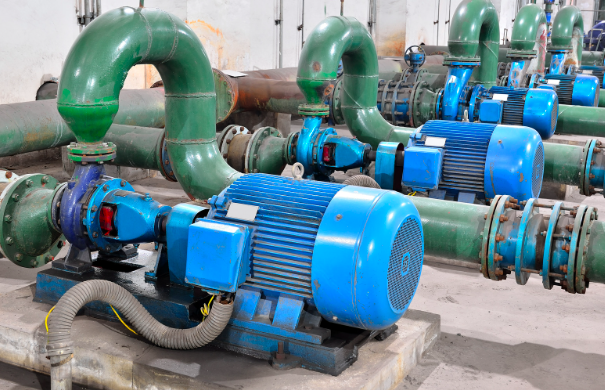Last Updated on November 25, 2022 by mdmtool
Whether you’re a homeowner, business owner, or municipal employee, you may need a sewage or sump pump at some point. Although these two types of pumps may appear very similar, they are pretty different.
Sewage pumps are designed to handle larger volumes of fluid and solids and can typically handle up to 3 inches of solids. They are also built to withstand more wear and tear and can run for extended periods.
On the other hand, Sump pumps are designed to pump smaller volumes of fluid and are not built to handle as much wear and tear.
So, when choosing between a sewage pump and a sump pump, it’s essential to consider the volume of fluid and solids that need to be moved, as well as the level of durability and lifespan you need.
What Is Sewage Pump?

A sewage pump is a type of pump designed to handle wastewater and sewage. Sewage pumps are typically used in homes and businesses to remove debris from toilets, sinks, and other fixtures.
What Is Sump Pump?

A sump pump is a type used to remove water accumulated in a sump pit. A sump pit is usually located in the basement of a home and collects water that has seeped in through the foundation or walls. Sump pumps pump the water out of the pit and prevent flooding.
Difference Between Sewage Pump And Sump Pump
Installation: Sewage pumps are typically installed by a professional plumber. A homeowner can install sump pumps, but it is recommended that a professional be consulted to ensure the pump is installed correctly.
Efficiency: Sewage pumps are less efficient than sump pumps. Sewage pumps deal with more significant amounts of water and waste, which can clog the pump and reduce efficiency.
Cost: Sewage pumps are more expensive than sump pumps.
Power Motor: Sewage pumps are powered by either an electric motor or a gasoline engine. Sump pumps are powered by either an electric motor or a battery.

Capacity: Sewage pumps have a higher ability than sump pumps.
Pressure: Sewage pumps can handle more pressure than sump pumps.
Applications: Sewage pumps are typically used in homes and businesses to remove wastewater from toilets, sinks, and other fixtures. Sump pumps are primarily used to pumping or lifting water in a sump pit.
Discharge: Sewage pumps discharge the wastewater into a sewer system. Sump pumps discharge the water into a drainage system.
Maintenance: Sewage pumps require more maintenance than sump pumps. This is because they are more likely to become clogged with waste and debris.
Materials: The housing of a sewage pump is typically made of cast iron, bronze, or stainless steel. The housing of a sump pump is generally made of plastic or stainless steel.
Lifespan: Sewage pumps have a longer lifespan than sump pumps.
Size: Sewage pumps are larger than sump pumps.
Types: There are two main types of sewage pumps:
- Grinder Pump
- Effluent Pump
There are three main types of sump pumps:
- Submersible
- Pedestal
- Battery-Operated
Signs To Repair Sewage Pump
- Clogged impeller
- Worn out bearings
- Damaged seals
- Leaking housing
Signs To Repair Sump Pump
- Excessive noise
- Leaking pit
- Overheating motor
- Inadequate power supply
FAQs
How Often To Maintain The Sewage Pump?
A sewage pump should be maintained every 3 to 5 years.
When Would I Need A Sump Pump?
If your home is in an area with a high water table, you may need a sump pump to keep your basement from flooding. A sump pump is also a good idea if you have had previous flooding problems or are planning to finish your basement.
How Often Should I Test My Sump Pump?
You should test your sump pump at least once a year, preferably in the spring before the rainy season. To test your sump pump, pour a bucket of water into the sump pit and ensure that the pump turns on and drains the cavity.
How Long Does A Sump Pump Last?
A sump pump should last for many years, but it is a good idea to have a backup pump on hand in case your primary pump fails. You may also want to consider installing a battery backup system for your sump pump to continue operating even if the power goes out.
What Size Sewage Pump Do I Need?
The size of the sewage pump you need depends on the number of fixtures in your home, the type of wastewater you have, and the capacity of your septic tank.
What Is Sewage Pump Alarm?
A sewage pump alarm is a device that is installed to alert the occupants when the sewage pump needs to be repaired or replaced. The alarm system can be set to sound an audible alarm, send a text message, or both.
When Do I Need A Sewage Pump?
If you have a home or business not connected to a municipal sewer system, you will need a sewage pump to remove wastewater from your property. Sewage pumps are also used in homes and businesses connected to a municipal sewer system but have lower water pressure.
Conclusion
Sewage and sump pumps are both types used to remove water. However, there are several key differences between the two. Consider the specific needs of your application when choosing a pump.





